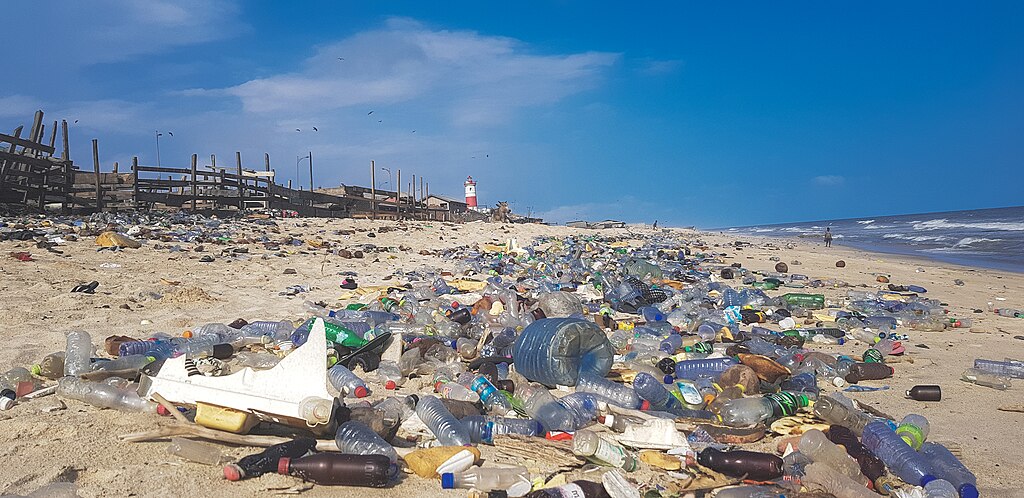Nations deadlocked over Global Plastics Treaty

Plastic Pollution in Ghana © Muntaka Chasant / CC 4.0.
20.08.2025
The UN’s negotiations for a Global Plastics Treaty ended in Geneva last week without an agreement or a clear path forward.
Over 100 countries, including the EU, supported a treaty to curb plastic pollution. However, talks stalled after oil- and petrochemical-producing states, including Russia, Saudi Arabia, and the United States, opposed proposals to limit plastic production and instead pushed for a focus on waste management and recycling.
Plastics pose serious risks to human health and ecosystems. Many break down into chemicals linked to cancer, hormone disruption, and developmental disorders, while microplastics are now found in food, water, and even human blood. Beyond direct health impacts, plastics pollute oceans and soils, threatening wildlife through ingestion and entanglement.
Yet the largest oil-producing nations view plastics as a vital part of their future economies. By 2030, petrochemicals (from which plastics are made) will be the largest driver of oil demand, overtaking use in vehicles as people move towards electric cars, making this is a climate issue as well as a pollution issue.
Ross Eisenberg, president of America’s Plastic Makers, a trade association for the US plastic production industry, noted; “Plastics are fundamental for modern life – they go in everything. Focusing on ending plastic pollution should be the priority here, not ending plastic production.”
With around 460 million tonnes of plastic being produced a year, and figures expected to triple by 2060 according to the OECD Global Plastics Outlook 2022, relying on recycling alone will not solve the crisis. The OECD also found that less than 10% of plastic ever produced has been recycled, much of it downcycled into lower-quality products. Without curbing production, even increased recycling efforts cannot keep pace with the scale of plastic waste entering the environment.
The UK’s head of delegation and Marine Minister Emma Hardy concluded; “I am hugely disappointed that an agreement wasn’t reached. Plastic pollution is a global crisis that no country can solve alone.”
However, ERF grantee ClientEarth noted that despite the lack of a deal, the talks gave reasons for hope. “Numerous countries showed brave and bold support for real action on plastics, Latin American nations in particular. The talks show that many states now understand that petrochemicals are the source of the problem, and the solution has to involve capping their production. There has also been increased scrutiny on the risks to our health that plastics pose, with scientists boldly speaking out on their research.”